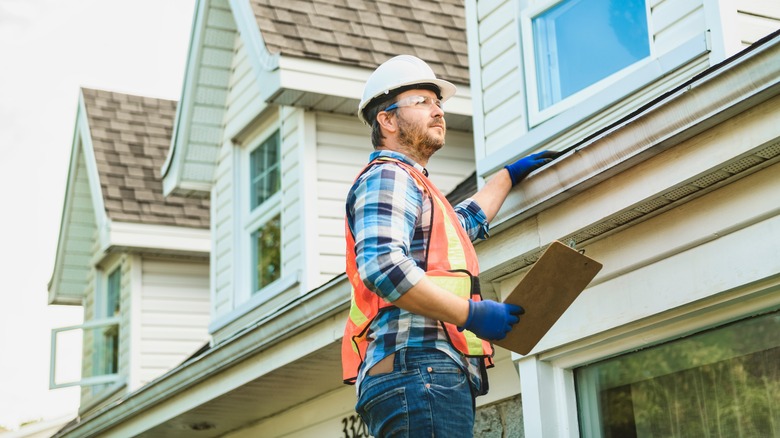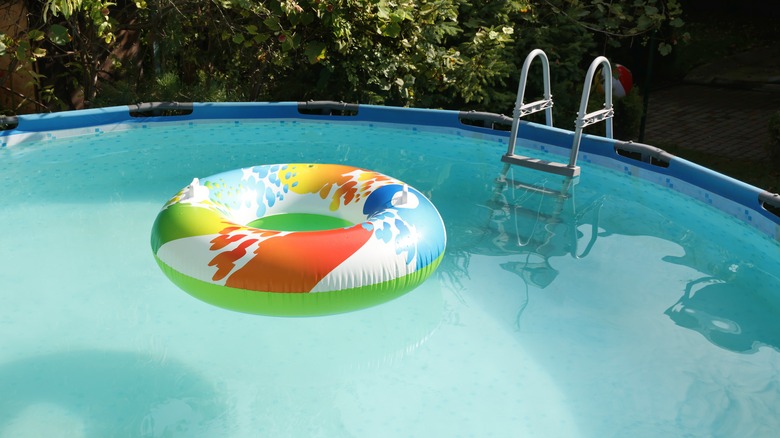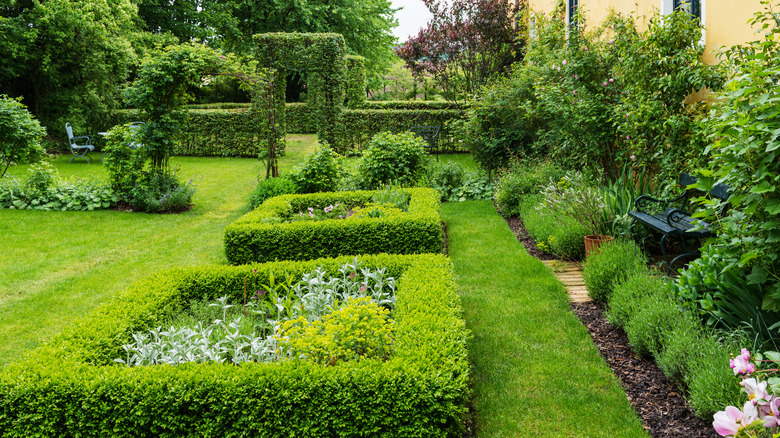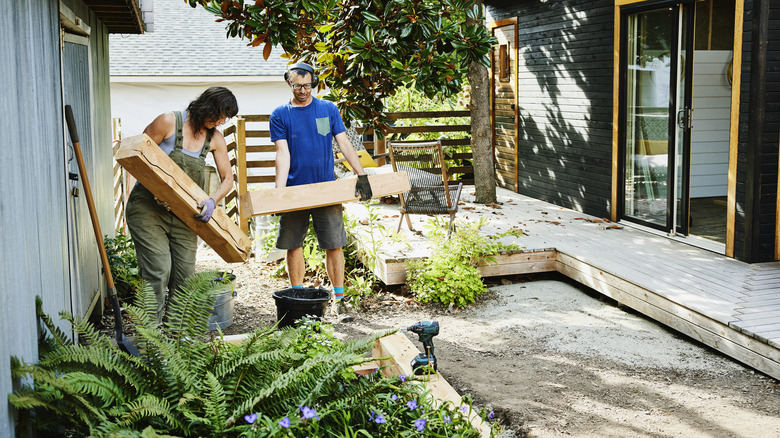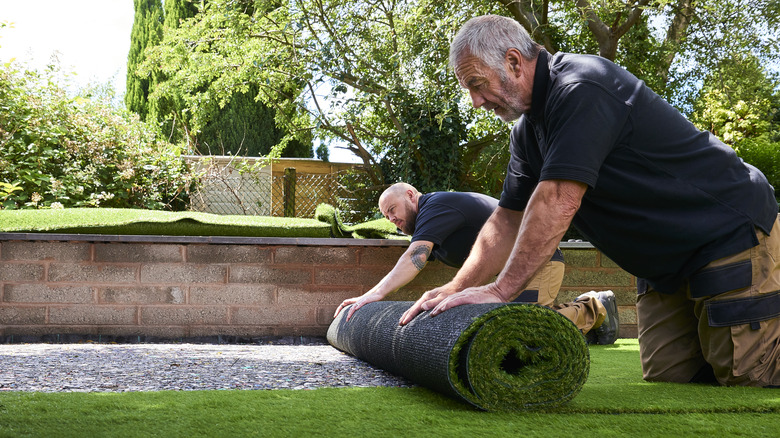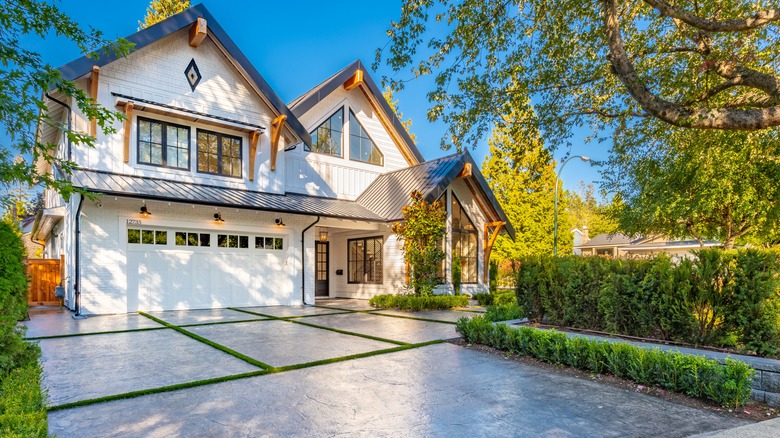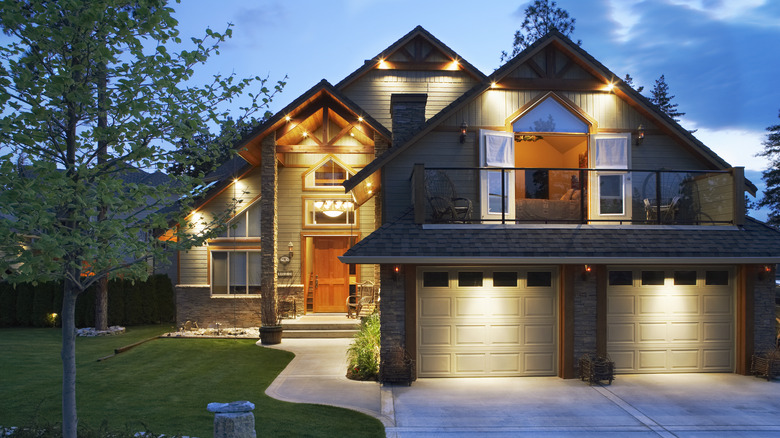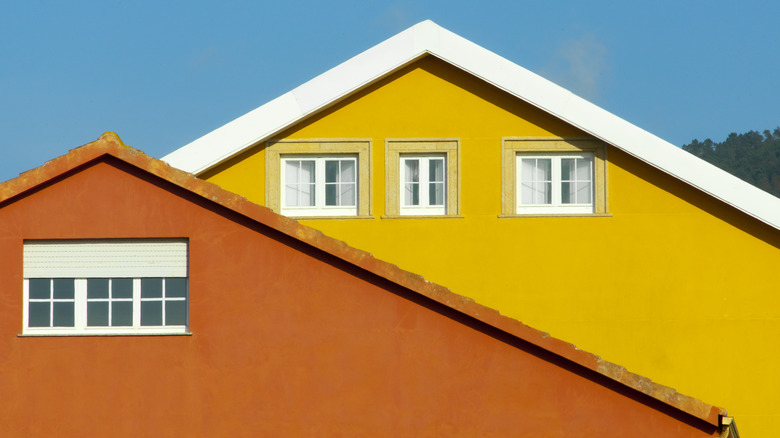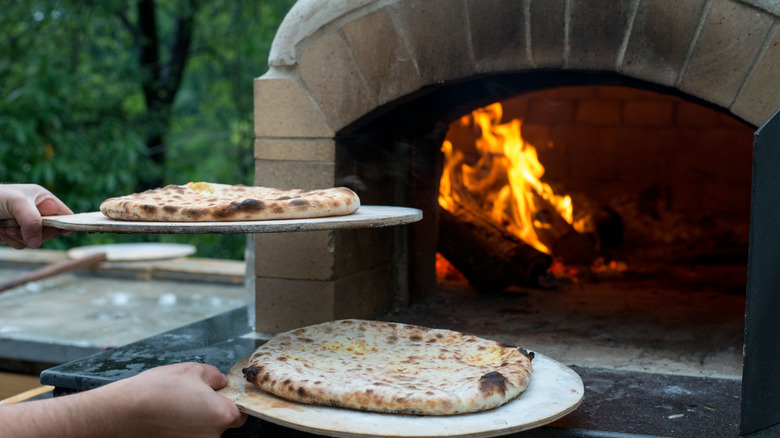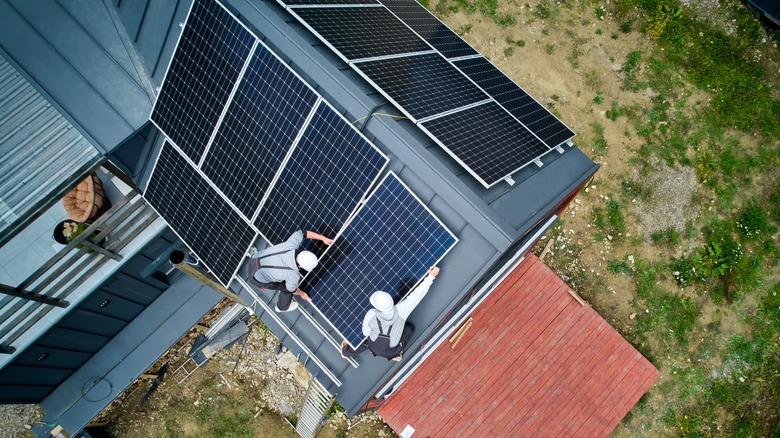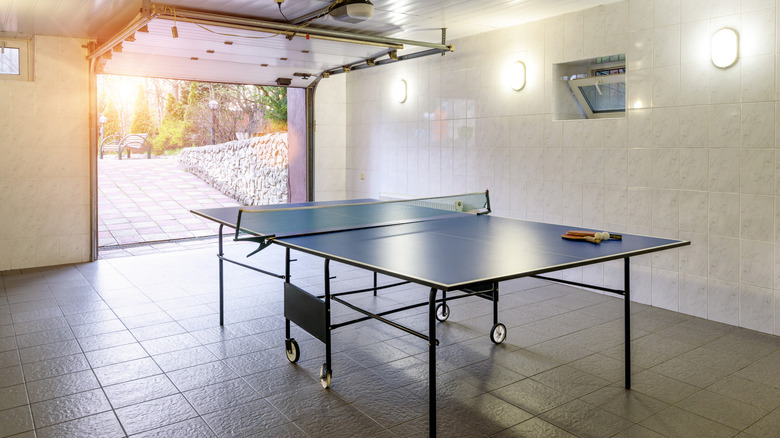Overrated Outdoor Upgrades That Are Total Money-Wasters
With the cost of living continuing to increase, more homeowners are realizing that they might be staying in their "starter homes" for longer than they originally thought. So, it stands to reason that upgrading that home's indoor and outdoor features over time would serve to add value, wouldn't it? There are certainly outdoor upgrades that add tremendous value, like decks, fire pits, and outdoor kitchens; however, others are a complete waste.
Now, a waste of money is a matter of opinion. If you are staying put in your home and will get immense personal value out of an outdoor upgrade, by all means, spend the money. However, in spite of this, the fact remains that some outdoor upgrades cost an awful lot to install and don't yield a particularly good return on investment. Then, there is the fact that many outdoor upgrade projects are simply overrated. You don't need most of them in order to live a happy life at home; hence, why we compiled this list of outdoor upgrades that we think are overrated money wasters.
Is the swimming pool really worth it?
The answer to this question depends on several factors. Where do you live? How long do you intend to live there? What kind of pool do you want? If you live in a warm climate, plan to stay in your home for decades, and have the space and capital to invest in a good-quality in-ground pool, you should go for it. It may not yield that much ROI, but if you plan on living in your home practically forever, what is ROI compared to decades of fun?
If you live in a colder climate, where the swimming season is short, and you don't have that much spare cash, it is probably best to avoid installing a pool. You could go with an above-ground pool, but those tend to be an eyesore, take up a lot of yard space, and offer no ROI. Plus, above-ground pools are more delicate than in-ground pools, meaning a good storm could easily destroy your summer swimming plans.
If you happen to live near or on a body of water, here are some more questions for you. What is the point of spending a ton of money for a swimming pool when you have a lake you can swim in for no extra cost beyond your mortgage? If you cannot reasonably justify the installation of a pool, it would be best to save your money.
You might have overdone it on the landscaping
Landscaping plays a particularly important role in how your home is viewed by outsiders. A rough, neglected-looking yard is the bane of your neighbor's existence. It could lead a potential seller to think that you haven't maintained your property well and that a lot of work will need to be done in order to restore it. However, on the opposite side of the coin, there is also such a thing as too much.
Instead of merely keeping your yard neat and tidy, you've overdone it on the landscaping. You've overflowed your yard with tons of exotic plants, rocks, or statues and have it filled to the brim with all sorts of paths, hedges, and other natural features. This is going to give potential buyers a hard time because, while it may be nice, they will find it difficult to envision how they can make the property their own.
This is unfortunately also true with sustenance features, such as beehives, orchards, and huge vegetable gardens. We at Outdoor Guide are very pro garden, but we understand that their presence may be off putting to potential buyers. We still think gardening is good for your health, but keep in mind that it might damage future selling prospects.
That DIY project could cost more than you planned
So many want to be able to DIY the heck out of their homes and yards. Yet, they often forget that there are some outdoor renovations you just shouldn't do yourself. You're not going to DIY your own pool installation, for example. While building a kid's play set or raised garden beds is easy to do and won't set you back too much, other outdoor DIY projects could end up costing you more money than you planned.
A case in point is the installation of a patio. Yes, you could technically do this yourself, but should you? While it may seem simple enough to dig, tamp, install, and set the slope of a patio, there is a very good chance that you are going to underestimate what it would cost for you to do it. Why spend more money and end up having a product that won't last when you could have had a pro do it for you?
This is not to say that the DIYer is not skilled. What we are saying is that there are some projects that should either be left to the pros or not attempted at all. According to PR Newswire, the average American wastes over $300 and 6 hours on DIY projects. Why run the risk of losing value on your home because you just had to do that project yourself?
Fake grass is bad for the environment — and you
We've written extensively about why you should steer clear of artificial grass. However, it is worth bringing up again because, of all the overrated and money-wasting ideas on this list, this is one of the biggest. There is next to no benefit, environmentally or financially, in putting fake grass down in your yard. Not only can it increase water runoff, overheat in the sun, and even slice into you, if sharp enough, but the stuff could actually bring toxicity into your home environment.
Part of the process of putting down artificial grass is to add crumb rubber fill in order for the "grass" to stay centered on the earth. Though it is made mainly from recycled rubber, crumb fills have been known to contain a number of toxic chemicals and contribute microplastics to the environment. Plus, installation typically costs upward of $10,000, depending on the size of your lawn. So, not only could you end up losing a lot of cash, but you could do irreparable harm to yourself, your yard, and potentially your neighbors. It is best to just stay away from artificial grass altogether.
Don't let your yard become a concrete jungle
There are some concrete structures that add value to your home. Indeed, some of them might even be necessary, such as retaining walls, driveways, and foundations. You can easily pretty up concrete with stone veneer, which is an option, by hanging planter boxes to add greenery. Still, while concrete can play a role in your yard, you don't want to go overboard.
There are some yards that look as though they are more concrete than grass. Whether it's an overly long driveway, a home addition, block pathways in the garden, or an out-of-place basketball court, having too much of the gray stuff is quite unnatural. What concrete additions boil down to mostly is a matter of taste, though concrete isn't exactly cheap either. Lawn Love lists the price of concrete as between $110 to $165 per cubic yard.
Not only that, but concrete tends to become rather hot under direct sunlight. You could wind up with higher energy bills owing to the thermal increase in temperature surrounding your home. So, keep the concrete to small walkways, shed pads, and retaining walls. There's really no need for more than that.
Don't light up your house like a Christmas tree all year
Yes, you should absolutely invest in outdoor lighting. Not only does it keep you safe in the sense that it provides enough illumination for you to see around your property, but it can also help deter any unwanted guests who might be plotting to burglarize your house. However, there are some people who go unnecessarily overboard.
You don't need accent lights shining on your home and shrubs all year long. Yes, it's good for the White House because it is the capital of the United States. But for your stately suburban home? It is totally unnecessary. Plus, neighbors won't take too kindly to your house being lit up like a Christmas tree all-year round. They need their beauty sleep just as much as you do.
If you must light up your house, then make sure that you aren't investing in some kind of over-the-top electrical system. Some small, solar-powered accent lights along the walkway that emit a soft glow are more than acceptable, as are the cozy garden lights you hang in your backyard. It's the excessive floodlights people can't stand. Reserve those for strategic access points in your yard.
Avoid crazy exterior colors
We've all seen the houses. The quirky ones with the bright shutters and the colorful exterior walls. The house piques your interest because of its unique, individualistic expression. You think that it might be cool to paint your shutters pink and your clapboards purple. More power to you, so long as you don't intend to sell your house in the next five years. The only reason to paint your house so ostentatiously is because you plan on staying there for a while. If you are determined to get the most resale value out of your home so you can level up in the future, do well to avoid quirky colors in favor of a more neutral color palette.
Minimalist aesthetic still sells, so painting your house white, beige, or neutral gray is going to give buyers that vibe. However, if you paint your house lurid shades of red, yellow, or bold blues, folks are less likely to be enthused by this. Neither you nor they want to be stuck with the cost of repainting a house. Unfortunately, that task will likely fall to you since it's your paint choice that is keeping the house from selling.
Are you really going to use that pizza oven?
There is no question that a well-appointed outdoor kitchen will add a decent amount of value to your home. Having the grill set up outside next to a seating area and a nice fire pit is going to make anyone looking to buy your house feel right at home. There are many who build outdoor kitchens that incorporate a wood-fired pizza oven into their design. If you're considering it, you might want to think twice.
Now, if you're a real foodie who will appreciate the versatility of a wood-fired oven and use it constantly, go ahead and build one. However, the unfortunate reality is that more than likely, the build will yield some initial enthusiasm that then peters off over the next few months, and then the thing you spent a lot of money on becomes unused and gathers dust.
Plus, the next owner of your property might not be all that into cooking. They will appreciate the setup with the grill, but the pizza oven could seem a little excessive. So, as the owner and builder, why not purchase a smaller, portable, propane-powered pizza oven instead? You get similar results for half the cost, and you can take it with you when you move.
Solar panels might not be worth the energy savings
Like everything else on this list, if a solar upgrade works for you, you should do it. However, it is imperative to do your research and stop and consider whether or not you are actually going to be saving all that much money by installing solar panels on your roof. For the sake of cost-effectiveness, there are plenty of reasons not to move ahead on an installation.
According to Forbes, solar panel installation can cost upwards of $20,000. And that's before any kind of government rebate. Objectively, $30,000 is a lot of money to invest in something that is exposed to the elements and could potentially seriously damage your home. Roof damage, water leaks, and impairment to the panels themselves are all common, costly repairs that people have experienced when they've installed solar panels on roofs.
So, whether you might be making up for electricity savings could very well be eaten up by the cost of component repairs. Additionally, if things go south, which they have a tendency to do, you could be out a lot of money that could otherwise have gone towards paying your electricity bill.
Garage upgrades
Apart from the basement and the attic, the garage is one of the primary storage places of a home. Some will keep their cars in there, but many will use them as storage units for other large items like lawnmowers, boats, tools, and other outdoor gear. Yet, there has been a growing trend of converting these areas into living spaces. You'd be better off doing this in your basement than in the garage.
Not only does a garage renovation cost a lot of money, but it also removes that essential storage space you had. Now, if you've got room for the foosball table, put it there. Just don't go about changing everything over into an additional living space unless you absolutely have to because you are growing your family or taking in an elderly member who still wants some autonomy.
Once again, this boils down to a matter of taste. If you like what you've done with your house, that is fantastic. Just realize that if you decide you're going to sell it, you will need to cater to the tastes of the buyer. And that can be very difficult to do if you've sunk a lot of time and money into all of these upgrades.
